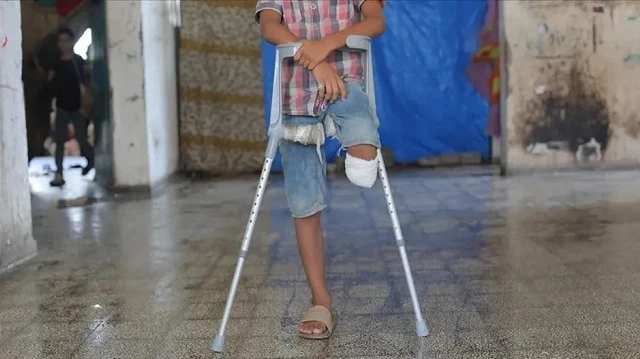Healthcare in Gaza Devastated by Prolonged Blockade and Attacks

Reklam yükleniyor...
Reklam yükleniyor...
According to the UN Office for the Coordination of Humanitarian Affairs (OCHA), as of September 10, the death toll of Palestinians in the Gaza Strip has risen to approximately 65,000, while the number of injured has reached 164,000.
Among the wounded, at least 4,700 people have undergone amputation surgery, including more than 940 children and about 370 women. On average, ten children lose one or both legs every day, making this, in the words of the United Nations, “the largest group of child amputees in modern history.”
Following repeated attacks on hospitals and medical staff, fewer than 15 out of 36 hospitals remain partially functional. In addition, 87 percent of surgical equipment is unavailable, severely restricting the ability of doctors to provide life-saving treatment.
Looking back, the first medical evacuation was carried out 27 days after the assault began, on November 1, 2023. With the sudden attacks, the healthcare system was already overwhelmed, with more than 8,000 people killed and about 23,000 people injured. Between November 1, 2023, and May 7, 2024, 4,895 wounded and critically ill individuals were evacuated through the Rafah border crossing, averaging about 750 patients per month. In May 2024, Israel destroyed Gaza’s only access point to the outside world and its sole functioning evacuation route, Rafah crossing. Following its destruction and the collapse of the evacuation mechanism, Israel failed to establish an alternative system for medical evacuations, leaving tens of thousands of patients and wounded individuals without access to life-saving care.
Compounding the crisis, family separations are widespread, as parents are often denied permission to accompany their critically ill children, further intensifying emotional and logistical challenges for both parties.
Due to the ongoing blockade, hospitals face a critical shortage of medications and essential supplies. Doctors have been forced to carry out complex surgeries — including amputations — without anesthesia or pain relief and under unsanitary conditions. According to Médecins Sans Frontières (MSF), the absence of even basic drugs such as antibiotics has left doctors with no choice but to amputate limbs in order to save lives, including in cases where amputations could have been avoided under normal medical circumstances.
In addition, access to rehabilitation, prosthetics, and other disability-related services remains severely restricted. Delays, shortages, and the inability to deliver essential equipment have left hundreds of wounded people without prosthetics, wheelchairs, or hearing aids. Disabled children are among the most affected, facing immense challenges in daily life.
Beyond the physical impact, survivors are also struggling with serious psychological trauma. Widespread reports point to high rates of post-traumatic stress disorder (PTSD), depression, anxiety, sleep disturbances, and other mental health conditions, driven by constant bombardments, displacement, violence, and the loss of family members. With virtually no access to therapy or rehabilitation, experts warn that these conditions may cause irreversible developmental harm, particularly among children.
What is unfolding in Gaza is not merely a humanitarian crisis — it is genocide, marked by the deliberate collapse of healthcare and the mass suffering of civilians.
Reklam yükleniyor...
Reklam yükleniyor...







Comments you share on our site are a valuable resource for other users. Please be respectful of different opinions and other users. Avoid using rude, aggressive, derogatory, or discriminatory language.